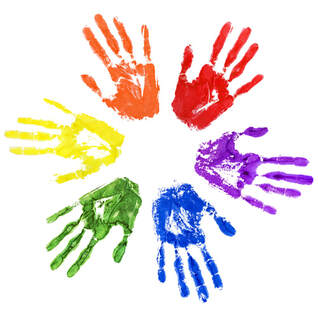Individual Therapy

Common issues for lesbian, gay, bisexual, transgender, and queer individuals tend to include:
- Depression
- Anxiety
- Low self-esteem
- Coming out as LGBTQ+ to self and others
- Establishing healthy intimate relationships
- Internalized homophobia
- Internalized transphobia
- Finding a comfortable gender role and expression
Populations served: teens, young adults, and adults
In order to effectively meet your individual therapeutic needs, my practice includes varying combinations of Cognitive Behavior Therapy (CBT), Dialectical Behavior Therapy (DBT), Psychoanalysis, and Zen Therapy with an overall focus on the importance of the relationship and connection between the therapist and the client to ensure that you feel secure and heard.
CBT – Often, what lowers our mood, increases our anxiety, or motivates behavior we would like to change are irrational thoughts that have been ingrained in us at different stages of our lives. Utilizing CBT, we can identify these cognitions and bring them into reality. We accomplish this by finding the rational and emotional evidence needed to contradict these false beliefs, providing relief of the depressive or anxious state and allowing for change in undesired behaviors.
DBT – Two components of DBT that I incorporate most into my practice, if a fit for our work together, are mindfulness and chain analysis. Mindfulness is an active process of being present in and focused on the moment. Once you master mindfulness you will naturally observe, describe, and participate in the moment non-judgmentally, one-mindfully, and effectively. With chain analysis we take a detailed look back into each action, body sensation, thought, event, or feeling that may have caused a behavior to occur, to learn what we need to alter in order to change that behavior.
Psychoanalysis – Secure attachments to loved ones and a healthy bolstering of your sense of self are essential in childhood in order to have a healthy understanding of who you are throughout your life. If you did not get enough warmth and affection or were not told that you were attractive, smart, and funny as a child, you will continue to look for these essential elements of identity into adulthood and sometimes in unhealthy ways. In our work, we explore current troubling situations, take care to understand what is causing these situations, and then, if appropriate, interpret and make connections to childhood experiences. Once these connections are made, we bring our work back to the present in order to create healthy coping mechanisms and relationships.
Zen Therapy - To assist in my clients gaining a realistic sense of satisfaction and peace, I incorporate the Zen Therapy concepts of: 1) everything and everyone constantly changing, 2) radical acceptance of where we are right now (before moving on or making purposeful changes), and 3) craving as a main root of suffering. After gaining a true understanding of these concepts, we lessen suffering through work on figuring out where these cravings are coming from and how we can get rid of them.
- Depression
- Anxiety
- Low self-esteem
- Coming out as LGBTQ+ to self and others
- Establishing healthy intimate relationships
- Internalized homophobia
- Internalized transphobia
- Finding a comfortable gender role and expression
Populations served: teens, young adults, and adults
In order to effectively meet your individual therapeutic needs, my practice includes varying combinations of Cognitive Behavior Therapy (CBT), Dialectical Behavior Therapy (DBT), Psychoanalysis, and Zen Therapy with an overall focus on the importance of the relationship and connection between the therapist and the client to ensure that you feel secure and heard.
CBT – Often, what lowers our mood, increases our anxiety, or motivates behavior we would like to change are irrational thoughts that have been ingrained in us at different stages of our lives. Utilizing CBT, we can identify these cognitions and bring them into reality. We accomplish this by finding the rational and emotional evidence needed to contradict these false beliefs, providing relief of the depressive or anxious state and allowing for change in undesired behaviors.
DBT – Two components of DBT that I incorporate most into my practice, if a fit for our work together, are mindfulness and chain analysis. Mindfulness is an active process of being present in and focused on the moment. Once you master mindfulness you will naturally observe, describe, and participate in the moment non-judgmentally, one-mindfully, and effectively. With chain analysis we take a detailed look back into each action, body sensation, thought, event, or feeling that may have caused a behavior to occur, to learn what we need to alter in order to change that behavior.
Psychoanalysis – Secure attachments to loved ones and a healthy bolstering of your sense of self are essential in childhood in order to have a healthy understanding of who you are throughout your life. If you did not get enough warmth and affection or were not told that you were attractive, smart, and funny as a child, you will continue to look for these essential elements of identity into adulthood and sometimes in unhealthy ways. In our work, we explore current troubling situations, take care to understand what is causing these situations, and then, if appropriate, interpret and make connections to childhood experiences. Once these connections are made, we bring our work back to the present in order to create healthy coping mechanisms and relationships.
Zen Therapy - To assist in my clients gaining a realistic sense of satisfaction and peace, I incorporate the Zen Therapy concepts of: 1) everything and everyone constantly changing, 2) radical acceptance of where we are right now (before moving on or making purposeful changes), and 3) craving as a main root of suffering. After gaining a true understanding of these concepts, we lessen suffering through work on figuring out where these cravings are coming from and how we can get rid of them.